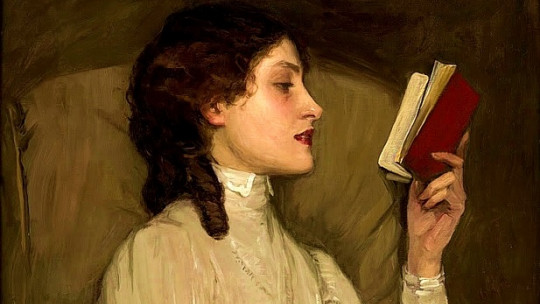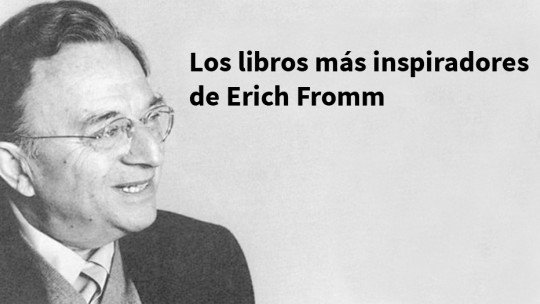
What is the “death of the author”? Maybe you’ve heard of it, or maybe this is the first time you’re hearing this expression. No, it has nothing to do with a physical death.
Rather, it is something symbolic, a way of expressing in words one of the ideas that has been gaining the most strength in current literature. Intrigued? Keep reading; In this article we will discover what it is about.
What is the “death of the author”?
In literature, this expression refers to the idea that The written text does not belong to its author, but is the heritage of universal culture and, above all, of the reader Obviously, the text itself has an author who has shaped it. However, what this idea proposes is that every text includes a series of concepts that already appeared at the time in other texts; That is, they are intertwined ideas that feed each other and, therefore, belong to the historical heritage, and not to a specific and individual person.
When an author writes a text, he or she is expressing in it an infinite series of ideas that have already been expressed in previous texts. Thus, if a novel talks, for example, about infidelity within marriage, it is collecting all the testimonies that, about this fact, have been included in previous novels and stories.
The “death of the author”, as we will see, entails a kind of criticism of literary positivism through which the author profits through a work that, in reality, and following the ideas proposed by this theory, does not belong to him, but to all of humanity.
The first theorist: Roland Barthes
It was the French writer, philosopher and essayist Roland Barthes (1915-1980) who first gave shape to the concept in a work precisely titled The death of the author (1967). In this essay, Barthes proposed the bases of what would be the future theory. Specifically, he focuses on cast doubt on the authority that grants the author the sole and ultimate meaning of a text In reality, and according to Barthes’ theory, a text can have multiple interpretations, as many as it has readers. For this same reason, it is incorrect to place all the weight of the meaning of the text on the author.
It is undeniable that an author composes a text with meaning. But it is also undeniable that the reader is the other subject (with a very diverse family, social, emotional, etc. context) who approaches that same text and who, therefore, he is filtering it through his own experience
Let’s imagine, for example, that we have read a novel, and that we really like the protagonist. What a great concept we have of this guy: he is good, strong, brave… in short, a true hero. Let us now imagine that we receive an interview with the author of this novel. We devour it with tremendous enthusiasm, hoping to find in the writer’s words exactly what we have perceived. Surprise! When asked about the protagonist, the author comments that he is a pushover, and that he does everything he does only driven by an uncontrollable desire to survive. No heroism, of course.
That is precisely what Barthes was referring to when he talked about the meaning of a text not resting solely on the shoulders of its author. A text is the result of a series of experiences of its creator who, in turn, has drawn on the experiences of other authors. But at the same time, The reader, who is an active (and not passive) part of the process, makes the text his or her own and transforms it into something that fits his or her reality and that it has meaning in your own life. The original meaning of the character (the faint-hearted who moves out of fear) does not adapt to the life of the reader who has seen him as a hero. The character is the same; the experiences that interpret it, different.
Therefore, and based on all this, Barthes maintained in his essay that, for the reader to exist, the author must disappear. This is what he calls the “death of the author,” a concept that has endured, and continues to endure, in contemporary literature.
What is an author?
Roland Barthes also speaks in his essay about the sense of belonging. According to this theorist, if the author is not the “owner” of his work (since it has included a long tradition of ideas that existed before him), he should not profit from it. Yes, he is the one who has shaped those ideas, he has molded them, he has transcribed them, he has given them voice, but he has drawn from the sources of universal human culture and from all the other authors who have existed before him. Therefore, and according to Barthes, the importance given to the author in today’s world is only fruit of capitalism, which has placed this author, the one who generates money, at the center of the entire process

Barthes was obviously not the only one who supported this idea of the “death of the author.” The playwright Bertolt Brecht also insists on this when he states that, to approach a text, one must distance oneself from its author. Only in this way are the different perspectives necessary for the text to acquire its full meaning.
For its part, at the conference What is an author? (French Philosophy Society, 1969), the writer and philosopher Michel Foucault (1926-1984) asks exactly this question: What does it mean to be an author? If the work survives the physical death of the author, then it means that it is autonomous. But, in addition, Foucault also asks: What is the work? The text is something dynamic, alive, an element to which one constantly returns and from which new and varied discourses are extracted.
Here Foucault introduces the idea of “reactualization”, according to which the text is returned to again and again, but in different sources. And how is that? Indeed; If a text is a communion of ideas that are not only found in an individual and concrete text, but in universal human culture, we can access those ideas through various sources that, precisely, dialogue with each other.
If we return to the idea of infidelity in a marriage, how many novels can we find that deal with this idea? From Anna Karenina from Tolstoy to The painted veil by W. Somerset Maugham, passing through Fortunata and Jacinta by Galdós or the classic Madame Bovary by Flaubert. But we also find this idea in the medieval epic of Tristan and Isolde and also in the mythological stories of the Olympian gods. That is to say, the idea of marital infidelity is developed in various sources, in various texts, and they all feed off each other, because the authors find inspiration in them.
The text is something infinite
Michel Foucault follows Barthes’ idea that the author must be erased, annihilated (metaphorically, of course) to give space to the interpretation of each reader And, in reality, we can ask ourselves: is a work something finished? Is a novel, for example, something finite? We constantly witness a reinterpretation of works, whether in the form of sequels, new film adaptations that offer more twists, or in reinterpretations in other formats, such as comics or paintings. If we attend a book club and listen to the different interpretations that a paragraph (not the entire work!) has depending on who reads it, we will realize that the work in question is alive, and then we will understand what it means. this very curious expression of the “death of the author”.
However, a series of questions arise. Does the author of a text have so little importance? Barthes, Foucault, Brecht, all the theorists of the “death of the author”, place the creator in a place of little relevance. This is so? While it is true that a work is a compilation of already existing ideas, it is no less true that the author plays an active role, classifying, investigating, putting together, uniting and separating the concepts. The author is a craftsman, who works on his work as a potter works with clay that already exists Is it fair, then, to reduce its role to the status of (almost) nothing? And where are work, dedication and copyright in this theory?
We let you draw your own conclusions, if there are any. Meanwhile, reread that book you read years ago. You will be surprised at how different you see it now. Is the book different? No, you are, and the book adapts to your reality. Or you to his, who knows.








